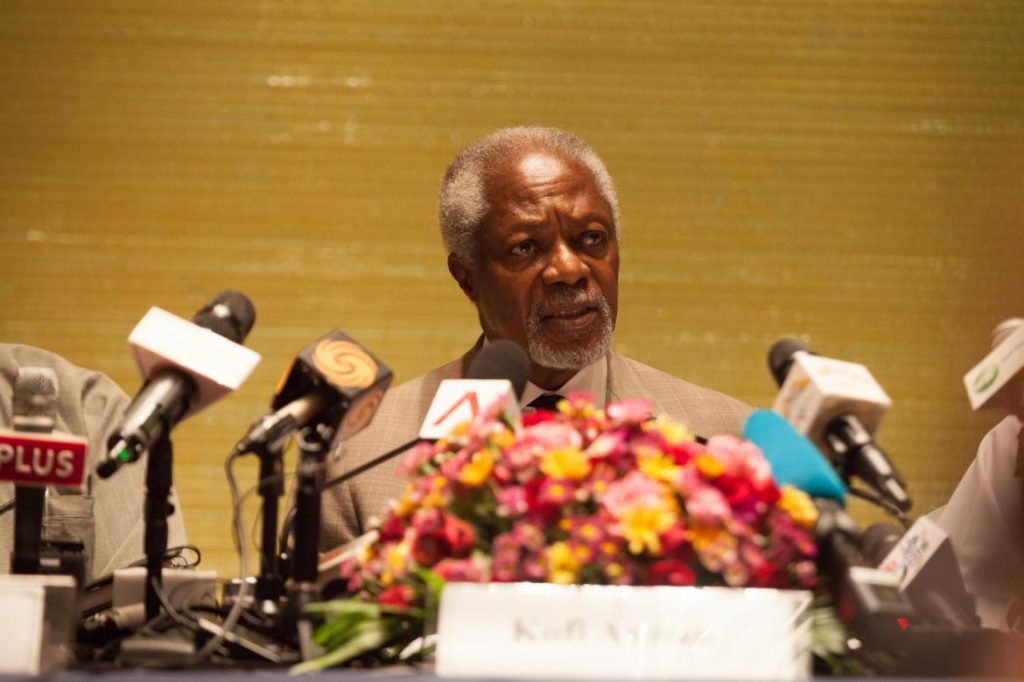By KYAW PHONE KYAW | FRONTIER
YANGON — Former UN Secretary-General Kofi Annan has sought to mollify critics of the government’s Advisory Commission on Rakhine State, saying Thursday that the body has not been tasked with investigating human rights abuses in Myanmar’s restive west.
The day after concluding his first visit to Sittwe as commission chair, Mr. Annan stated that the body would be acting in a purely advisory capacity, echoing comments made last month by government spokesman U Zaw Htay.
“It is obvious we are not here to conduct a human rights investigation or write human rights reports,” he told reporters at Yangon’s Sule Shangri-La Hotel. “I think I have indicated very clearly the mandate of this commission. And I hope our recommendations will be helpful as we intend to… make recommendations to reduce tensions and support development in Rakhine State.”
“We are not here as the inspectors, as the policemen. We are here to help at the request of the government,” he added.
Support more independent journalism like this. Sign up to be a Frontier member.
Annan’s entourage were greeted by several hundred jeering protesters at Sittwe Airport on Tuesday. The Arakan National Party, the state’s most popular political party, and Rakhine-based civil society organisations have called on the government to disband the commission.
The ANP refused an invitation to meet with the commission in Yangon earlier this week. Instead, party vice-chair Daw Aye Nu Sein presented him with a letter calling on the commission to be abolished.
An ANP-led motion in the Pyithu Hluttaw urging the removal of the body’s three foreign members was roundly defeated on Tuesday.
Annan said he was “not surprised” the motion failed, noting that military chief Senior-General Min Aung Hlaing and President U Htin Kyaw had also personally communicated their support of the commission in Nay Pyi Taw on Wednesday.
“So, this issue can be put behind us,” he said.
He added that he understood the Rakhine community believe international attention was largely focused on the state’s Rohingya population — over 100,000 of whom have confined to displacement camps since the outbreak of communal violence in 2012 — and assured reporters the commission would listen to the concerns of both sides.
In a departure from what has become standard practice for many foreign representatives in Myanmar, Annan used the word Rohingya in reference to Rakhine’s stateless Muslim population.
Use of the term is anathema to much of the state’s ethnic Rakhine population, who allege the Rohingya are illegal immigrants from Bangladesh and see the word as an attempt to legitimise their presence by stealth.
In the aftermath of a protest against a US Embassy statement referring to the Rohingya community in April, reports claimed that State Counsellor Daw Aung San Suu Kyi had asked officials to refrain from using the word, instead referring to the community as “Muslims in Rakhine State”.
Annan said Thursday that Daw Aung San Suu Kyi had not requested him to avoid use of the word Rohingya during their meeting this week.







